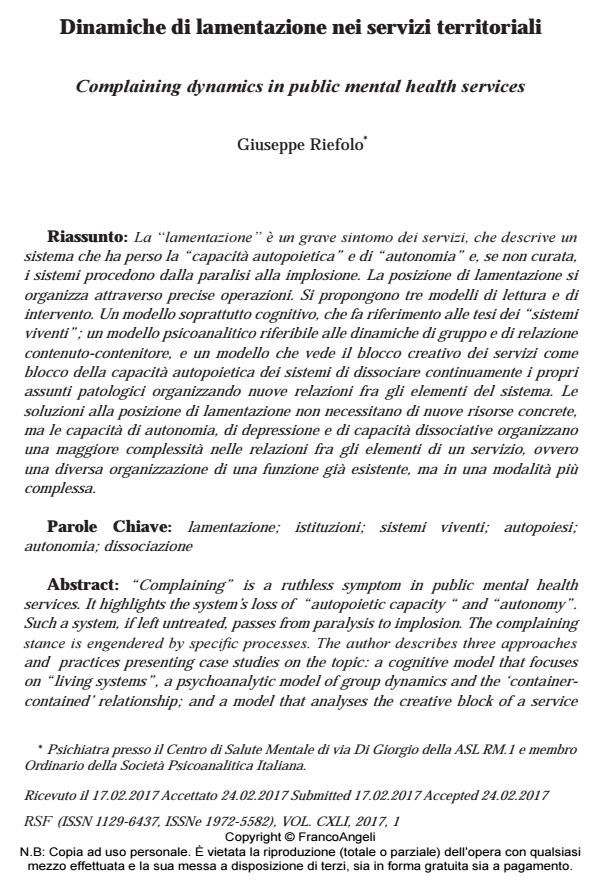Complaining dynamics in public mental health services
Journal title RIVISTA SPERIMENTALE DI FRENIATRIA
Author/s Giuseppe Riefolo
Publishing Year 2017 Issue 2017/1
Language Italian Pages 20 P. 75-94 File size 1744 KB
DOI 10.3280/RSF2017-001006
DOI is like a bar code for intellectual property: to have more infomation
click here
Below, you can see the article first page
If you want to buy this article in PDF format, you can do it, following the instructions to buy download credits

FrancoAngeli is member of Publishers International Linking Association, Inc (PILA), a not-for-profit association which run the CrossRef service enabling links to and from online scholarly content.
"Complaining" is a ruthless symptom in public mental health services. It highlights the system’s loss of "autopoietic capacity" and "autonomy". Such a system, if left untreated, passes from paralysis to implosion. The complaining stance is engendered by specific processes. The author describes three approaches and practices presenting case studies on the topic: a cognitive model that focuses on "living systems", a psychoanalytic model of group dynamics and the ‘containercontained’ relationship; and a model that analyses the creative block of a service as block of the autopoietic capacity of a system to dissociate continuously its pathological assumptions, promoting new connections between the different elements of the system. To deal with the complaining stance does not require new resources, but a different organisation of existing functions utilizing a more complex approach. In other words, when the capacity for autonomy, depression and the capacity for dissociation spawn more complexity in service relationships.
Keywords: Complaining, institutions, living systems, autopoiesis, autonomy, dissociation
- Alcune considerazioni a: Dialogo Aperto - un nuovo approccio psicoterapeutico e orientato ai diritti umani per costruire servizi psichiatrici umanistici Giuseppe Riefolo, in Ricerca Psicoanalitica /2021
DOI: 10.4081/rp.2021.589
Giuseppe Riefolo, Dinamiche di lamentazione nei servizi territoriali in "RIVISTA SPERIMENTALE DI FRENIATRIA" 1/2017, pp 75-94, DOI: 10.3280/RSF2017-001006